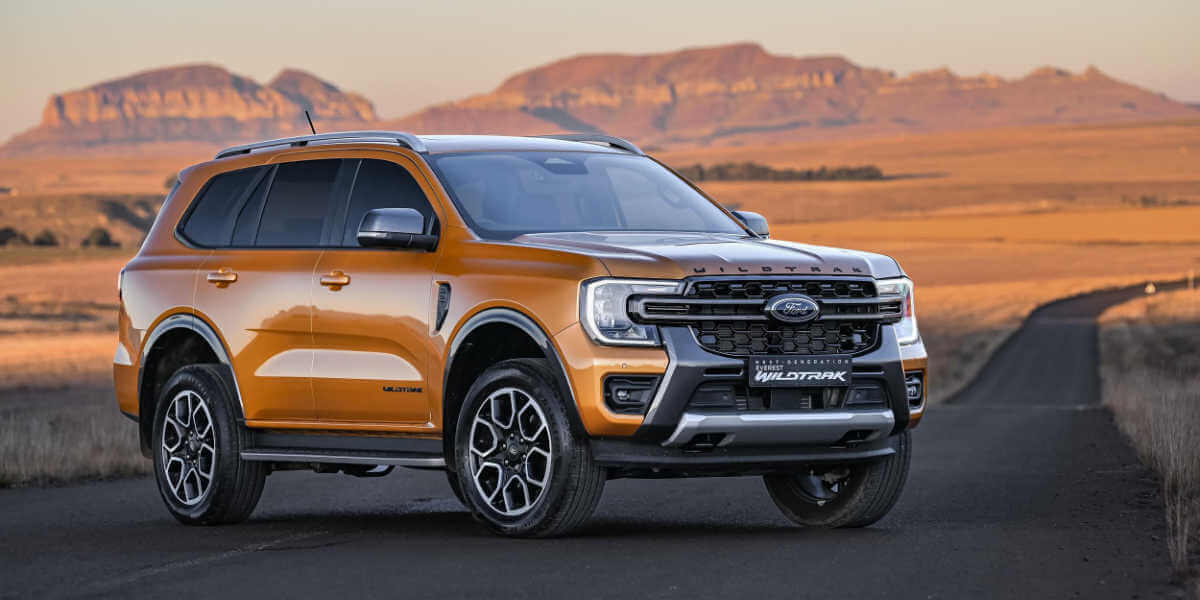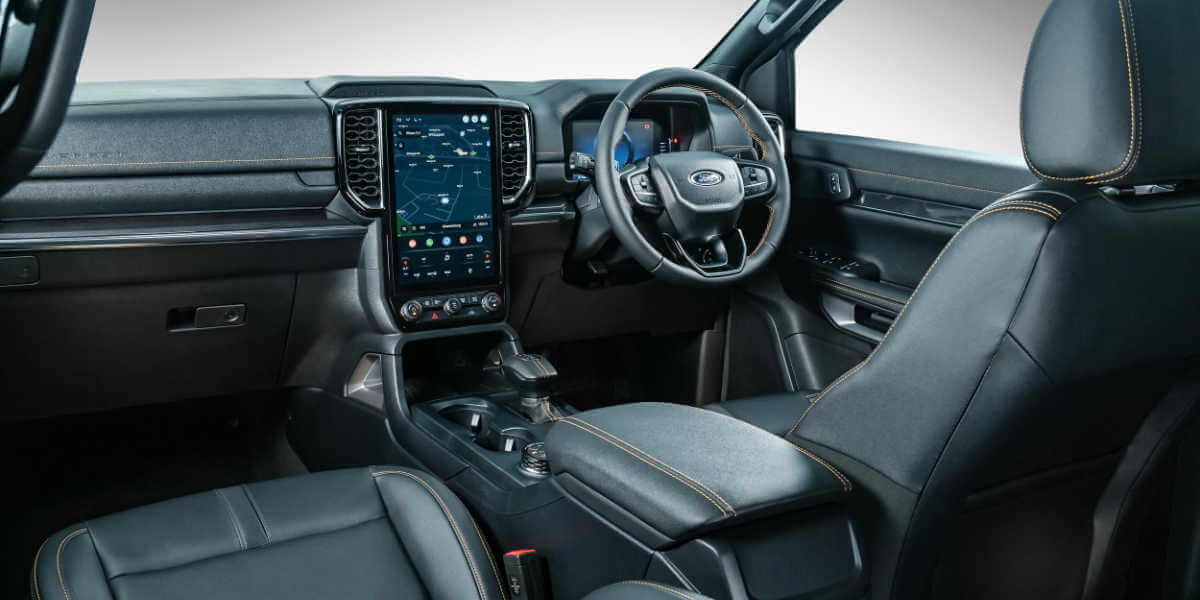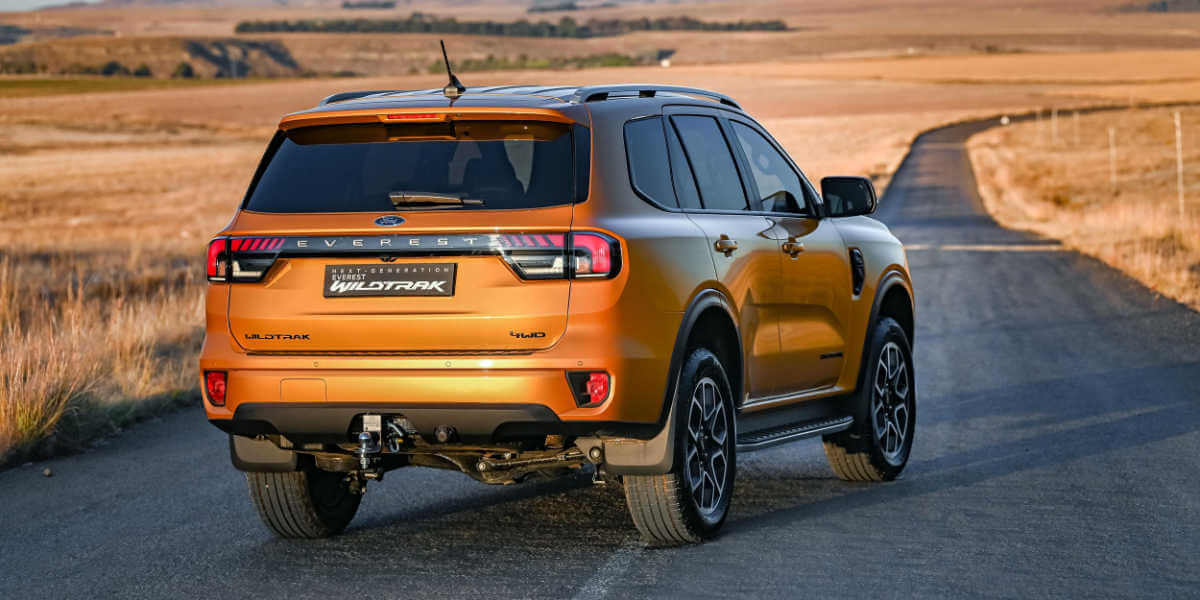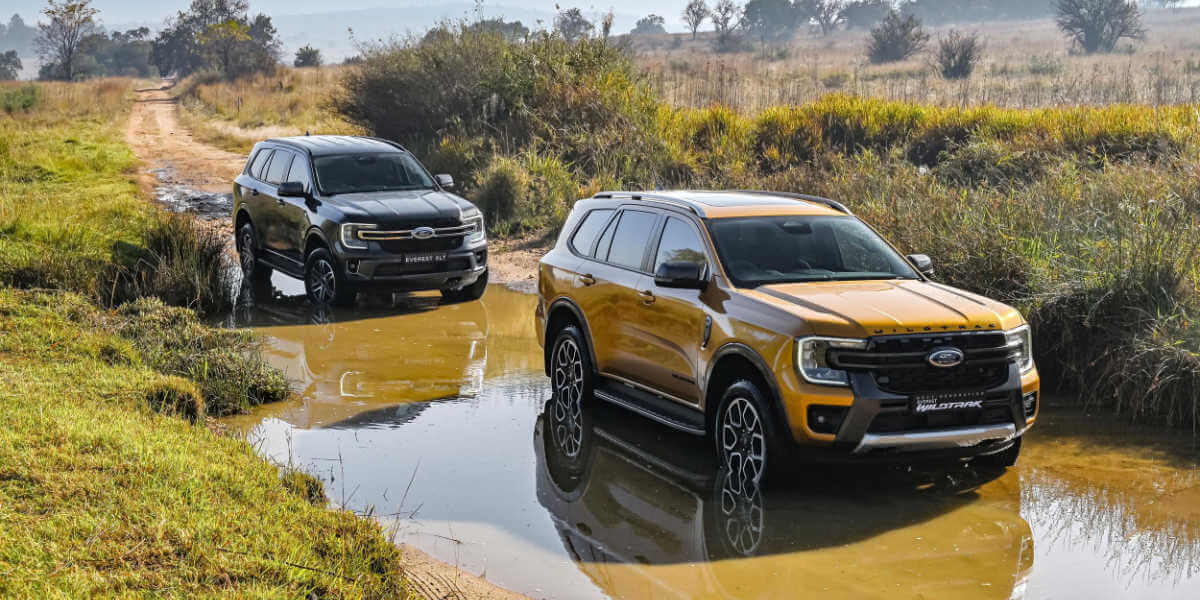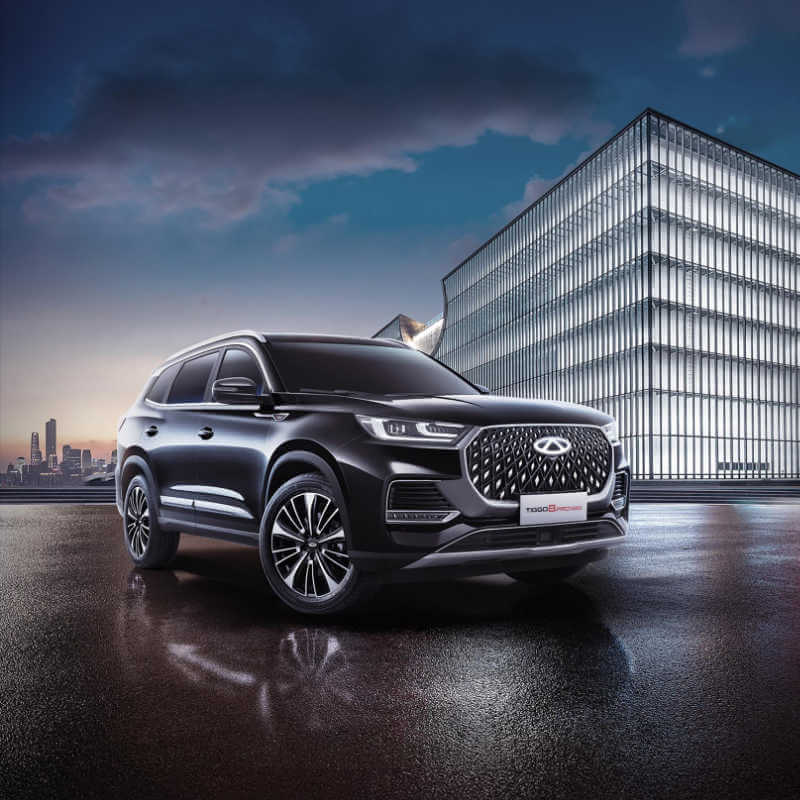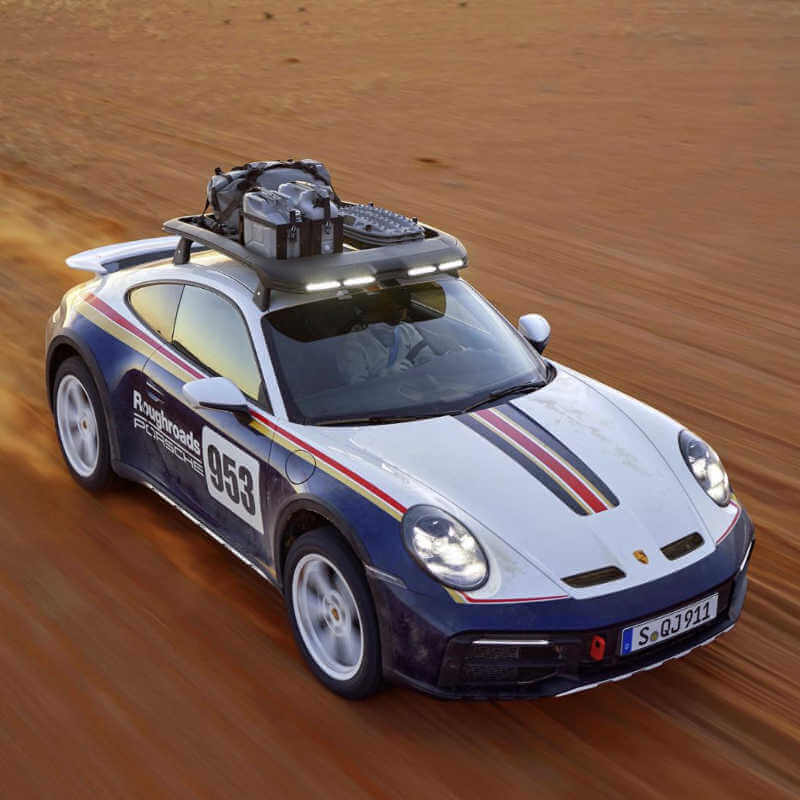Next-Generation Ford Everest Range to Expand
The Next-Generation Ford Everest raised the bar for luxury, sophistication and capability in the mid-size sport utility vehicle (SUV) segment when it was launched in South Africa late last year. Now Ford South Africa is upping the ante once again by expanding the range from two to six derivatives.
Of particular interest is the introduction of Ford’s legendary Wildtrak specification on the Everest for the first time, slotting in below the opulent Everest Platinum but sharing the same 184kW 3.0L V6 turbodiesel engine and permanent four-wheel drive system as the range-topping model. It is complemented by the addition of a 4×2 version of the Everest Sport, and the launch of the XLT series in 4×2 and 4×4 as the entry point to the Next-Gen Everest line-up – all of which use the renowned 154kW 2.0L Bi-Turbo diesel engine.
“The Next-Gen Everest has been exceptionally well received in South Africa, with its more premium positioning in the mid-size SUV segment making it a popular choice amongst family and lifestyle-oriented customers,” says Doreen Mashinini, General Manager for Marketing at Ford South Africa. “We are delighted to expand the range with an additional four derivatives that will meet the needs and budgets of a wider range of customers, particularly with the more affordable XLT models.
“Introducing the Wildtrak series to Everest for the first time is especially exciting, as it has been immensely successful on our Ranger line-up for well over a decade. The Wildtrak badge embodies trend-setting style, luxury, comfort and advanced driver assistance technologies,” Mashinini says. “The new Everest Wildtrak continues this legacy as an aspirational model that will further reinforce the Next-Gen Everest as a leader in design and innovation.”
Everest Wildtrak.
The Next-Gen Everest Wildtrak is an exciting new derivative that is athletic, sportier and more rugged than the core models, and captures the dynamic flair of the Wildtrak series that has been so popular in the Ranger bakkie over the years.
The distinctive character of the Everest Wildtrak is evident in the athletic design which incorporates a Wildtrak-specific bold front grille with horizontal bars and a tough mesh, all of which is painted in signature ‘Bolder Grey’. This liquid-like metallic accent colour is also applied to the front bumper design which is unique to this model, and provides an eye-catching contrast to the ‘Super Alloy’ silver finish of the front bash plate which houses dual recovery points and hints at the additional underbody protection fitted as standard on the high-spec four-wheel drive models (available as an option on the other 4×4 models).
In keeping with its exclusive status, the latest addition to the Everest line-up proudly features ‘WILDTRAK’ raised lettering on the leading edge of the bonnet, finished in the dark grey accent colour which is also applied to the mirror caps, rear bumper and the WILDTRAK and 4×4 scripts on the rear tailgate.
The strong and muscular design theme is reinforced with the unmistakable C-clamp headlights with their trademark LED daytime running lights, complemented by full LEDs for the headlights, fog lamps and tail light clusters. Added visual appeal is provided by the bright-finish side steps, stand-off roof rails and privacy glass, while an additional paint colour, Luxe Yellow, is exclusively available on the Everest Wildtrak.
Striking machine-faced two-tone 20-inch alloy wheels with 255/55 R20 tyres are standard on the Everest Wildtrak, but customers can option 18-inch rims and 255/65 R18 all-terrain tyres should they be more inclined to venture off-road on a regular basis.
The cabin environment is equally appealing, featuring the modern and upmarket design introduced on the Next-Gen Everest, incorporating the modern coast-to-coast dashboard and extensive use of soft-touch materials with high-quality finishes throughout. In Wildtrak execution the interior gains additional sporty flair courtesy of contrasting yellow stitching on the dashboard, door trims, steering wheel, gear lever and the comfortable yet supportive premium leather seats that incorporate the Wildtrak logo on the eight-way power-adjustable front seats. A dark roof lining along with the dual panel powered Moon Roof further enhance the upmarket ambience.
Comfort and convenience are key highlights of the Everest, and the Wildtrak features the high-end full colour 12-inch touchscreen that operates the latest-generation SYNC 4A infotainment system with wireless Apple CarPlay and Android Auto, an eight-speaker sound system, USB-A and USB-C connectivity and charging ports, a wireless charging pad that provides cable-free charging for compatible smartphones and a built-in 400W/240v inverter.
The Wildtrak is equipped with a dedicated off-road SYNC screen and a rotary Drive Modes control that accesses six settings: Normal, Eco, Tow/Haul, Slippery, Mud & Ruts, and Sand. It also features an impressive range of driver assistance technologies as standard, comprising Adaptive Cruise Control with Stop & Go and Lane Centering, Blind Spot Monitoring with Trailer Coverage, Cross Traffic Alert, Evasive Steer Assist, Lane Keeping System with Road Edge Detection, Pre-Collision Assist, Reverse Brake Assist and Tyre Pressure Monitoring System (TPMS).
Also available on the Everest Wildtrak as an option is Ford’s Active Park Assist 2.0 with full autonomous parallel and perpendicular parking, in combination with the 360-degree camera system that replaces the standard rear-view camera.
The Everest Wildtrak is powered by Ford’s powerful yet silky smooth 3.0-litre V6 turbodiesel engine which is shared with the range-topping Platinum model. It produces 184kW and 600Nm, and is mated to the latest version of Ford’s advanced 10-speed automatic transmission which uses the innovative electronic E-Shifter.
In 3.0L V6 guise the Everest boasts a permanent four-wheel drive system that uses an electronically controlled on-demand two-speed electromechanical transfer case (EMTC). The default driving mode for this system is 4A (Automatic) which can be used on and off-road as it constantly adjusts the flow of drive between the front and rear axles for enhanced traction in all road conditions. Based on the driving conditions, 4H for four-wheel drive high-range can be selected by simply pushing a button to improve grip and control on loose surfaces, or low-range (4L) for steep or rocky tracks and deep sand where enhanced low-speed control is required. There’s also a 2H mode which engages rear-wheel drive only.
Everest XLT.
Another important new addition to the Next-Gen Everest range is the XLT series, which is the least expensive model in the line-up, making Ford’s exceptional seven-seater SUV accessible to a broader range of customers. Despite the more affordable pricing, it offers a compelling range of comfort, convenience and safety features combined with outstanding capability.
In terms of styling the Everest XLT is distinguished by a classy chrome finish for the horizontal grille bars, offset against colour-coded treatment in key areas such as the door handles and mirrors. Privacy glass is provided from the rear windows backwards, and it shares the same high-tech full LED treatment for the daytime running lights, headlamps, fog lights and rear clusters as the high-spec models.
The interior appointments closely mirror the current Everest Sport, including partial leather seat trim for all seven seats, with eight-way power adjustment for the front seats. Along with the eight-inch digital instrument cluster, the XLT has the user-centric portrait-format 12-inch colour touchscreen for the feature-rich SYNC 4A infotainment system and SYNC off-road screen on the 4×4 model. Wireless Apple CarPlay and Android Auto, as well as the wireless charging pad, are standard fitment along with numerous USB-A/C ports, plus 12v sockets for the front and third row seats and in the load compartment.
Smart keyless entry is standard in the Everest, but this feature can be deactivated in the SYNC menu should the owner prefer locking and unlocking the vehicle directly from the remote. The powered tailgate is a fantastic feature to complement owners’ active lifestyles.
The package of safety features is impressive across the Everest range and the XLT is no exception. It includes dual front, side and curtain airbags, Electronic Stability Programme (ESP), Pre-Collision Assist (with Brake Support, Forward Collision Warning and Automated Emergency Braking), Lane Keeping System (including Lake Keeping Alert and Aid, Road Edge Detection and Driver Warning), Blind Spot Information System (with Cross Traffic Alert and Trailer Coverage), Reverse Brake Assist, Hill Launch Assist, Hill Descent Control (on the 4×4 model), as well as front and rear parking sensors with a rear camera.
The Everest XLT is powered by Ford’s 2.0-litre Bi-Turbo diesel engine that is shared with the Everest Sport. It produces 154kW of power and 500Nm of torque which, combined with the responsive 10-speed automatic transmission, delivers punchy performance matched with impressive fuel economy.
In XLT specification the Everest is available in a choice of two-wheel drive or four-wheel drive versions. The 4×4 model uses a part-time electronic shift-on-the-fly four-wheel drive system, which includes 2H, 4H and 4L modes, as well as a rear differential lock as standard for tricky off-road conditions. Its all-round capability is further enhanced by the six selectable Drive Modes which are shared with the Sport 4×4, Wildtrak and Platinum models.
Everest Sport.
Ensuring that there is a model to suit every customer’s needs, Ford has bolstered the Everest Sport offering with the addition of a 4×2 model to complement the existing 4×4 version – both of which are powered by the 154kW/500Nm 2.0L Bi-Turbo diesel engine in combination with the 10-speed automatic transmission. The Everest Sport 4×2 is ideal for owners that don’t venture far off the beaten track.
The two-wheel drive Everest Sport is visually identical to the 4×4 model, including the extensive use of black as a recurring theme for the front grille, mirrors, roof rails and stylish 20-inch alloy wheels.
The interior appointments are common to both models, including the eight-inch LCD instrument cluster, 12-inch colour touchscreen with wireless Apple CarPlay and Android Auto, a wireless charging pad and the useful 400W/240v built-in inverter that can power a wide range of accessories and small appliances. Active and passive safety features fitted as standard match that of the Sport 4×4 and the new XLT models.
Pricing (includes VAT):
- Everest XLT 2.0L BiT 4×2 10AT R 832 400
- Everest XLT 2.0L BiT 4×4 10AT R 896 300
- Everest Sport 2.0L BiT 4×2 10AT R 918 500
- Everest Sport 2.0L BiT 4×4 10AT R 984 800
- Everest Wildtrak 3.0L V6 4WD 10AT R 1 084 000
- Everest Platinum 3.0L V6 4WD 10AT R 1 146 500
Included as standard is a four-year/120 000km warranty, four-year/unlimited distance Roadside Assistance and five-year/unlimited distance corrosion warranty. The recommended service interval is 15 000km or annually, whichever occurs first.
Customers have the option of purchasing service or maintenance plans up to eight years or 165 000km. The warranty can be extended up to seven years or 200 000km, while the Roadside Assistance can be extended for an additional one or two years. Terms and conditions apply.
Article by: Ford

